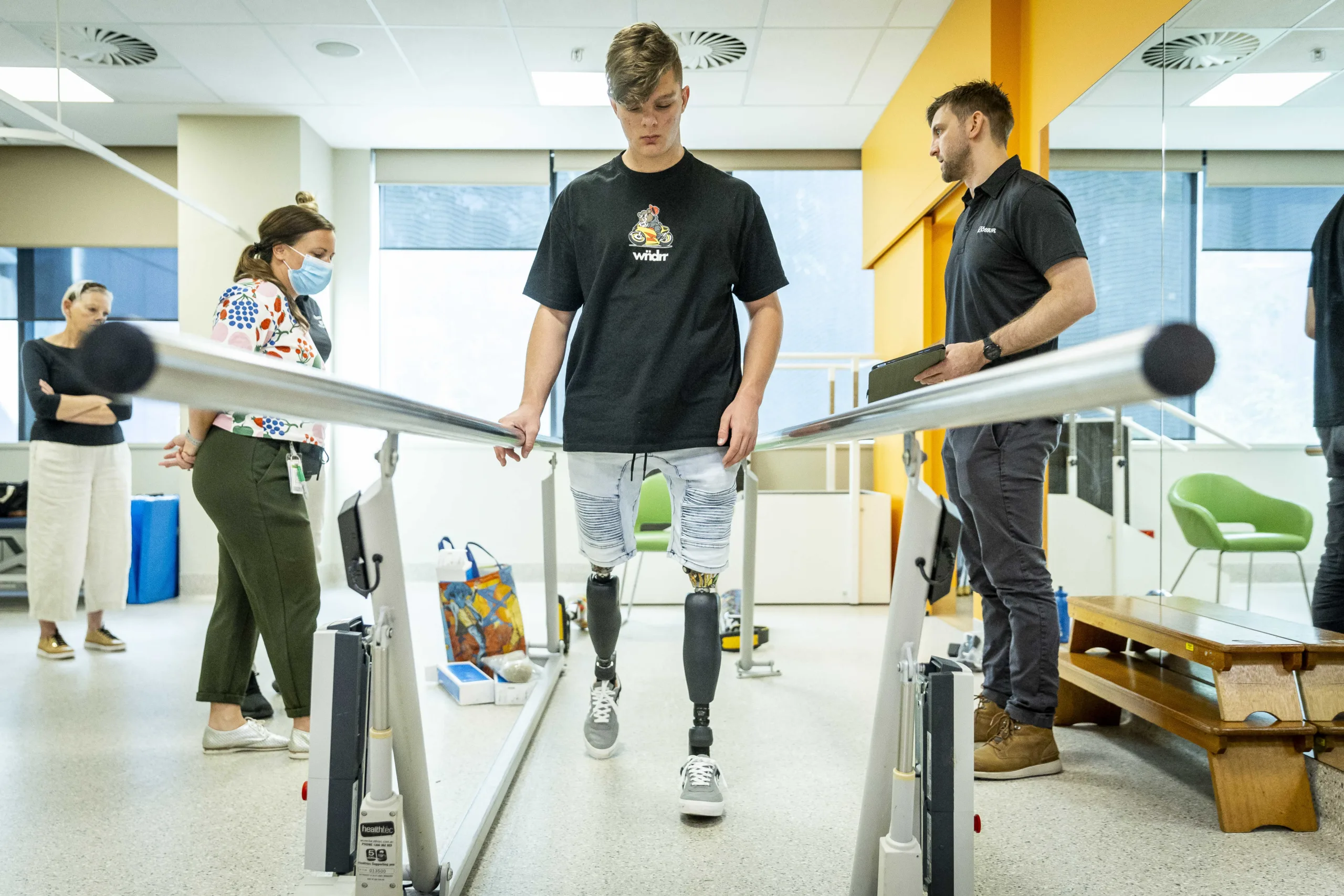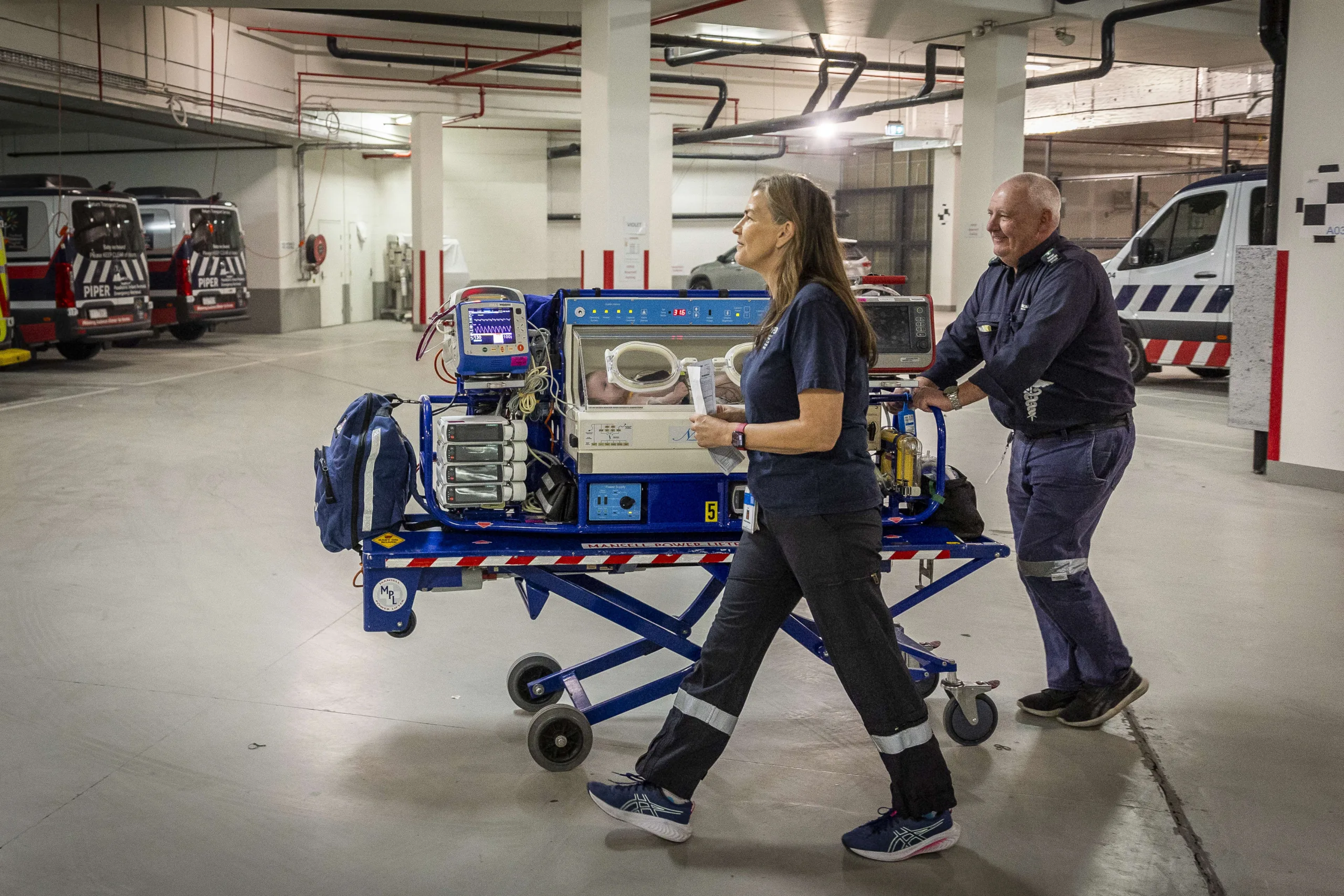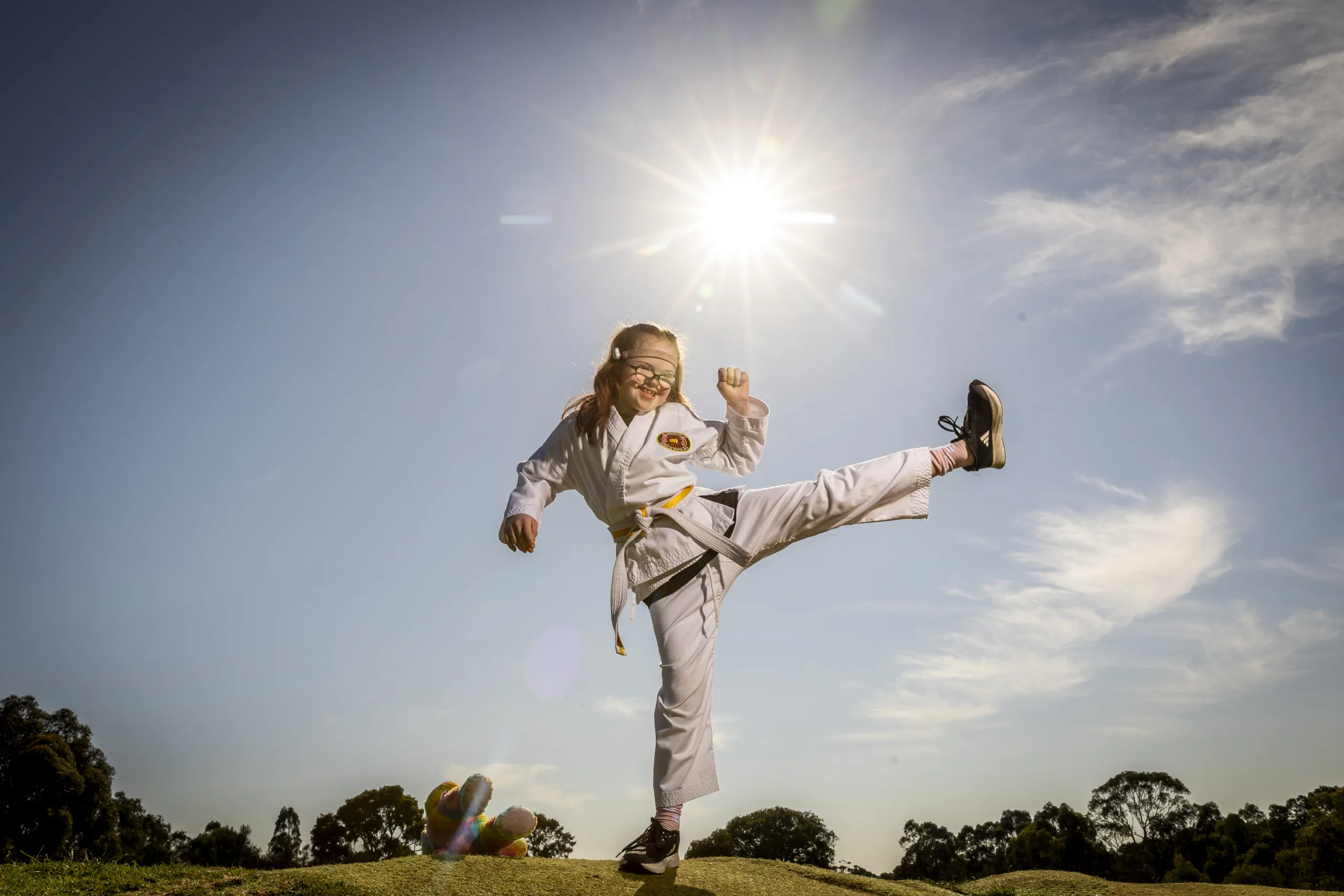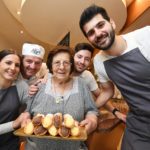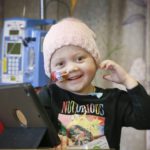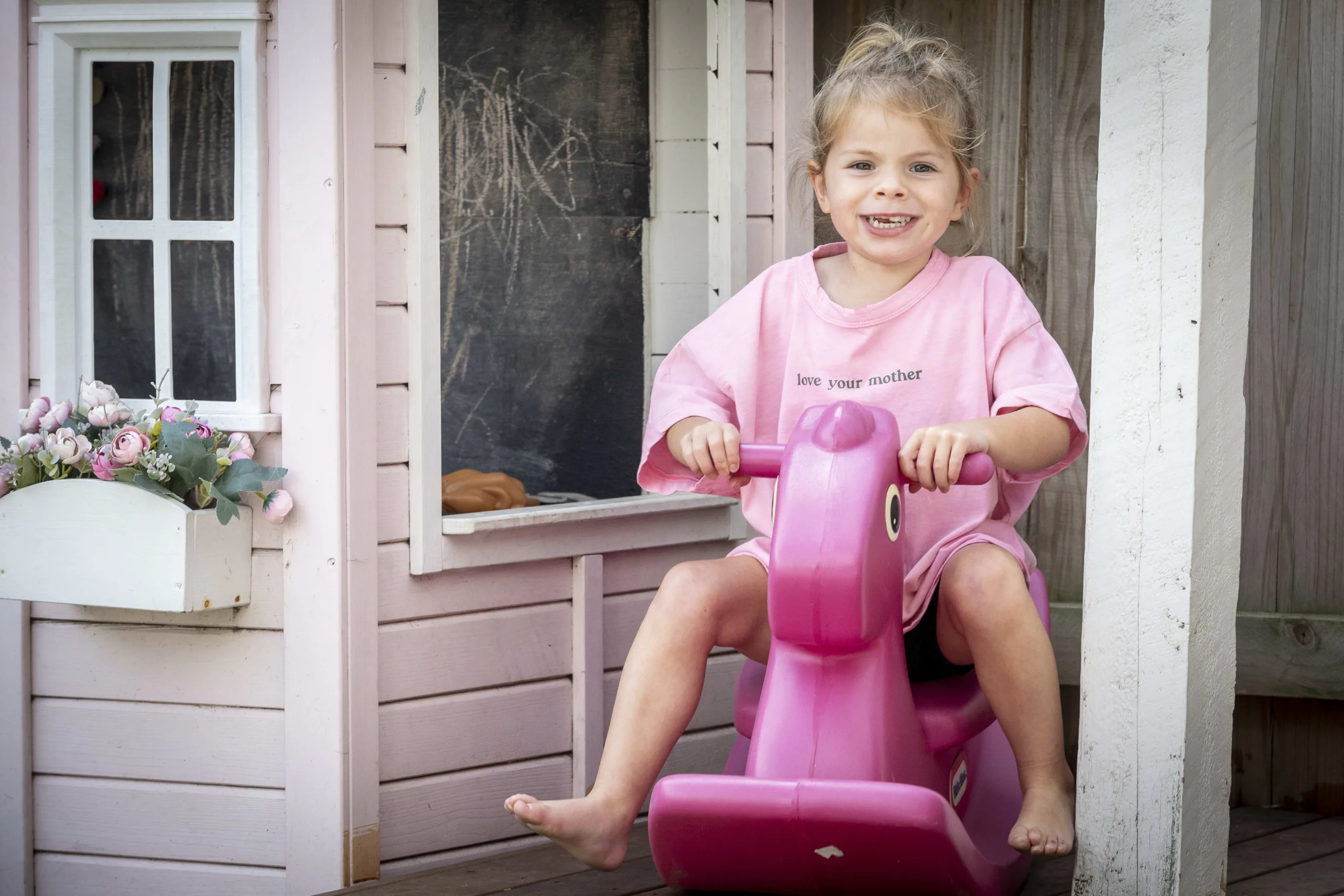
Harley’s Fighting Spirit
Diagnosed with a rare genetic disorder that causes tumours around her spine, three-year-old Harley has already endured more than any child should.
But throughout her treatment at the Royal Children’s Hospital she has maintained her smile and joy in the face of adversity.
Little Harley likes to be front and centre – she’s not shy, loves her dolls, drawing, kicking a ball and running around. What she doesn’t love, aged just three, is the lifesaving treatment she’s endured as the staff at the RCH fight hard, alongside her devoted parents.
Waiting is the hardest part. Parents Alex and Ellie know the tests, scans, MRIs, X-rays and biopsies lead to answers. And hope. But it’s the void between that is most unsettling. The fear, the uncertainty, the not knowing.
“The waiting hurts the most,” Alex says. “You circle a date, and you know it’s coming up; the tests, and the waiting, and the MRIs, and the waiting. You feel sick, you feel helpless.”
His partner, Ellie, tears welling in her eyes, adds: “If I could take all this pain away from our daughter, I’d do it in an instant. But, for now, we wait, and we hope. It’s a parent’s worst nightmare.”
Their daughter Harley, 3, has Schinzel- Giedion syndrome, an extremely rare and severe genetic condition that affects many parts of the body. Harley was six months old when Ellie first noticed a lump on her back. One GP said it was probably a nappy rash, and not to worry.
“It looked like a burst blood vessel,” Ellie recalls.
“Every time we gave her a bath, I’d look at it and think, ‘Something’s not right.’ It grew very slowly, and the vein became more prominent.” Ellie pushed for answers and Harley was sent to the Royal Children’s Hospital for tests and an ultrasound.
Soon after, and somewhat relieved to be in the care of the RCH, Ellie and Alex took Harley on her first-ever holiday, to Bali. However, when the family returned to Melbourne, Ellie’s phone blew up with messages to take Harley to the hospital for an urgent MRI. Clinicians had discovered a rare sacrococcygeal teratoma tumour on her tailbone. Harley needed surgery, immediately.
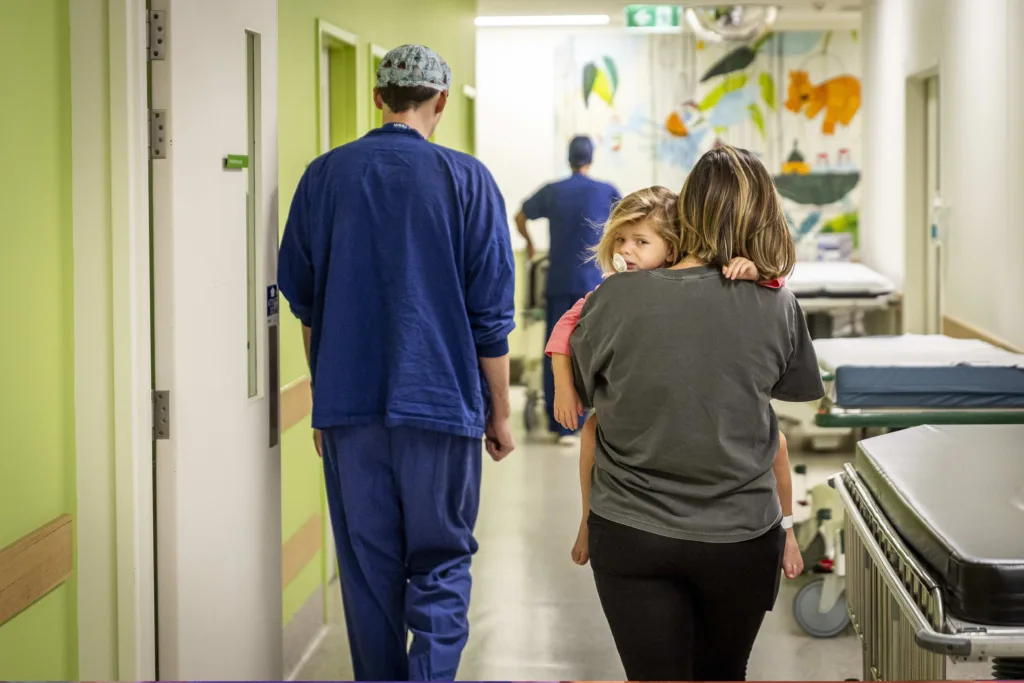
“It went from nothing to something, and we went into a panic,” Ellie says.
A team at the RCH removed the mass, but discovered something far more sinister. Harley was diagnosed with Schinzel-Giedion syndrome.
Patients with the extremely rare genetic disorder can develop skeletal abnormalities, kidney and liver issues, seizures and intellectual disabilities. Miraculously, Harley has shown no signs of those challenges.
“Harley is one of five people in the world to have this specific gene abnormality. But she’s different to every case that’s been studied,” Ellie says. “Harley doesn’t show typical signs that the other cases show. She’s only showing the fact she has a tumour.”
Dr Monique Bertinetti, a pediatric surgeon at the RCH, says the tumour discovered on Harley’s tail bone is normally found in the brain, rarely in the spine. Bertinetti removed the tumour from Harley’s coccyx in November 2023.
But she adds cautiously: “Schinzel-Gideon syndrome predisposes Harley to other tumours.”
After the surgery, Harley underwent ultrasounds every three months to check on kidney or liver tumours, and had regular MRI screenings of her pelvis to make sure there wasn’t any recurrent disease. Beyond that, the little dynamo from Melbourne’s inner western suburbs has tried hard to resume her life, or whatever the new normal will allow.
“Harley is cheeky, confident and very active,” Alex says.
Ellie adds: “She’s not one of those little girls who stands behind you, and gets all shy. She’s there, front and centre, and makes herself known. She has a bubbly personality.
“We try not to let anything stop her or slow her down. She’s also a girly-girl. She loves her dolls, loves make-up, and loves drawing pictures.
Alex says excitedly: “She loves her sport, too. Harley can dribble and kick a ball. She’s always running around, and loves playing outdoors. We can’t keep up with her.”
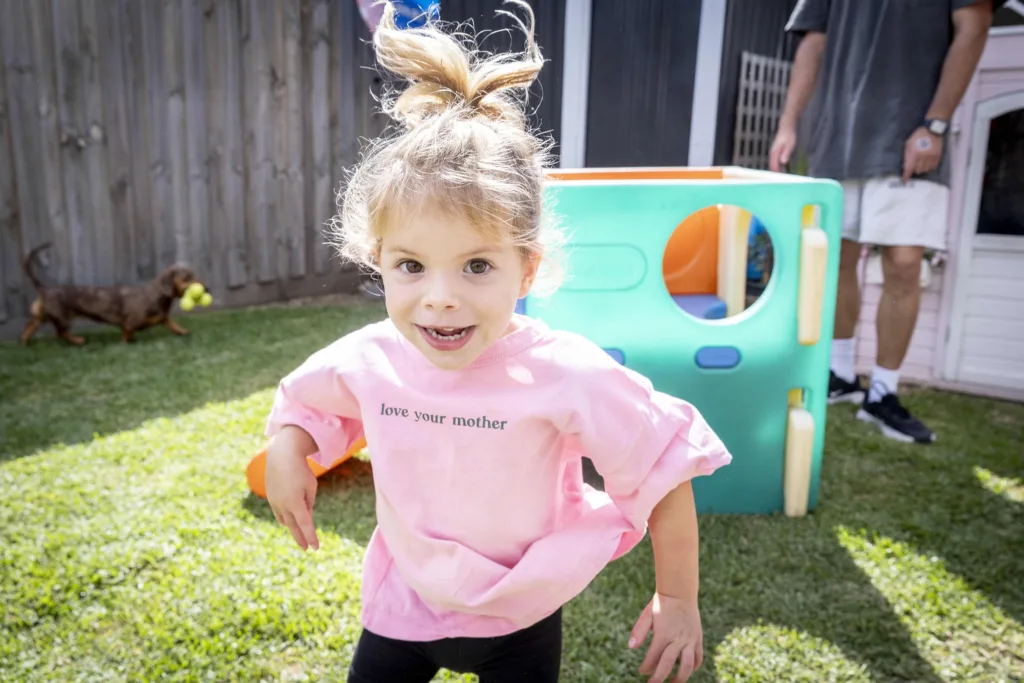
Her proud parents enrolled Harley in a soccer clinic. She also takes swimming lessons, and enjoys being part of a play group. The local grocers get a dose of Harley’s bright grin and cheeky ways most days. They also know her by name.
“She makes them laugh every day,” says Alex.
Sadly, Harley’s complicated health journey has brought Alex and Ellie to tears, many, many times. Two months ago, an MRI found another tumour. This time, it was in front of Harley’s vertebrae.
“We went to that appointment hoping to hear they were pushing her scans to six-month intervals,” Ellie says. “I know you’ve got to wait five years to consider yourself out of the woods. But we only got to 16 months. It really shook us.
“We had a holiday planned, we had things planned for her. It broke our hearts because we knew what she’d been through already, and she’d have to do it all again.”
Alex adds: “It’s the worst thing you could hear as a parent. It felt like it wasn’t over. You keep going because you see how strong and happy she is, and how she gets on with life.”
Ellie, her bottom lip trembling, continues: “You can’t just fall in a heap – as much as we’ve wanted to. We need to be strong for her.”
Harley returned to the operating theatre in late March to have the tumour removed.
“This family has been through a horrendous journey,” Bertinetti says. “Harley is so resilient. She’s a real fighter.”
Harley will continue with her checks and treatment at the RCH.
Ellie says the last surgery was tough. The feisty toddler clung desperately to her mother as clinicians began preparations for the operation. She also fought efforts to put her to sleep.
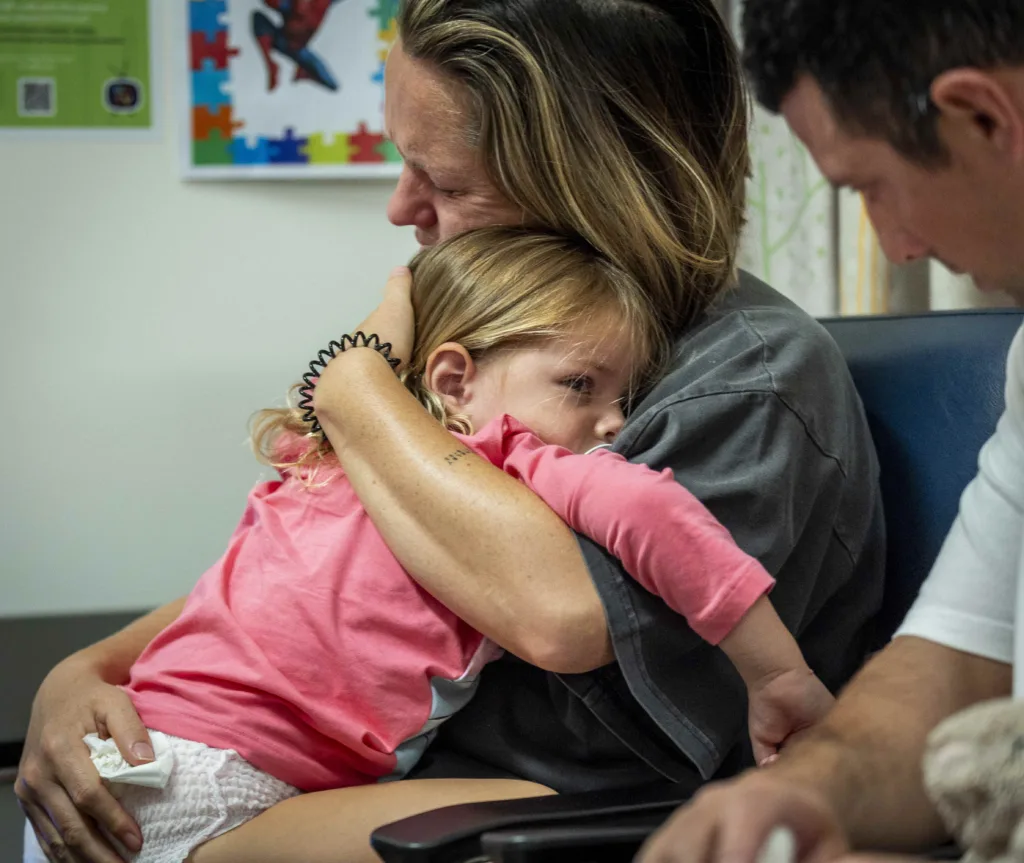
“Harley kept looking at me like, ‘Why are you doing this?’ She thinks mum is forcing her to do something she doesn’t want to do, and that’s really hard,” Ellie says. “It’s for her, and for her sake. We’re trying.”
A week later, happy Harley is back to ruling the roost. She’s at home, handing out Paw Patrol stickers, and juggling a busy afternoon with her bunny toys, pet dog, and playing in her life-size dollhouse in the backyard. Her young brother, Ryder, is asleep in Ellie’s arms.
“The first thing she asked after surgery was, ‘Where’s Ryder?’” Ellie says. “She’s an amazing big sister to him.”
“Harley keeps us positive. She keeps us going because she is so happy. After surgery, she was running around, and got back to her normal self. If she’s like this, we can’t feel upset or down.”
Ellie and Alex are indebted to the RCH for their care and support.
“The RCH does so much for sick kids and families at their worst times,” Ellie says.
“We always tell ourselves, ‘Harley’s in good hands.’ They’ve gone above and beyond for her.”
The couple has made sure to keep each other strong, too.
Alex: “Ellie has been amazing through all of this. We support each other.”
Ellie: “Alex prioritises his family. If we need him, he’s there.”
Meanwhile, the couple keep hoping for the positive prognosis their daughter deserves.
“The hardest thing to process is, how it all unfolded, and the way one thing turned into something else,” Ellie says. “The thing you wish for most when you have kids is a happy and healthy child. When that doesn’t happen, it breaks your world.”
Ellie takes a deep breath. “We’re trying to let Harley lead the way,” she says.
“Hopefully, she will keep moving forward in leaps and bounds, and we’ll be able to see a clear future ahead of us.”
They wish and, as much as it hurts, they wait.
Written by Nui Te Koha
Images by Jake Nowakowski
Published in the Herald Sun April 2025

